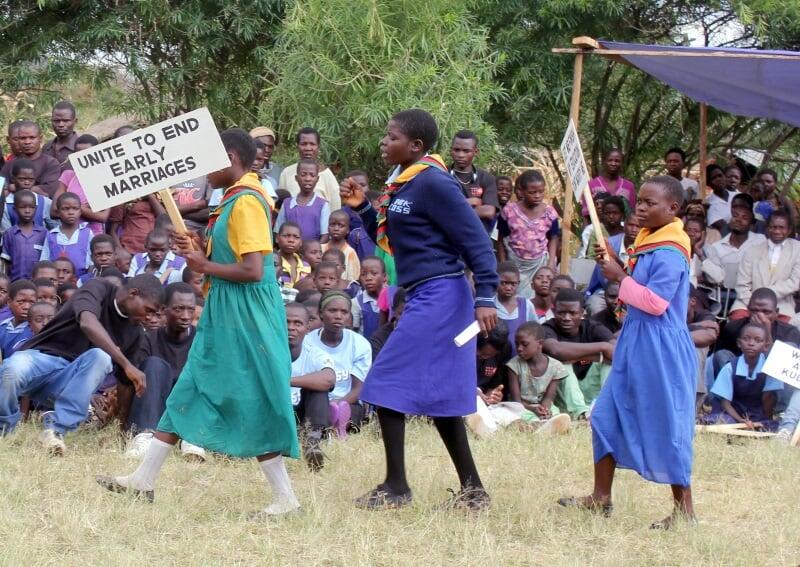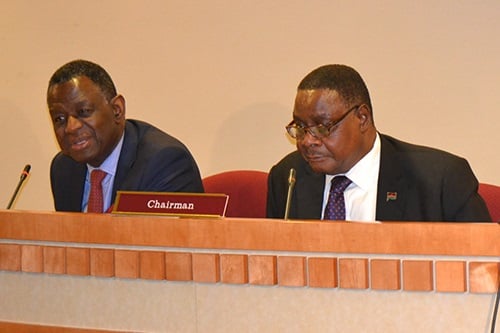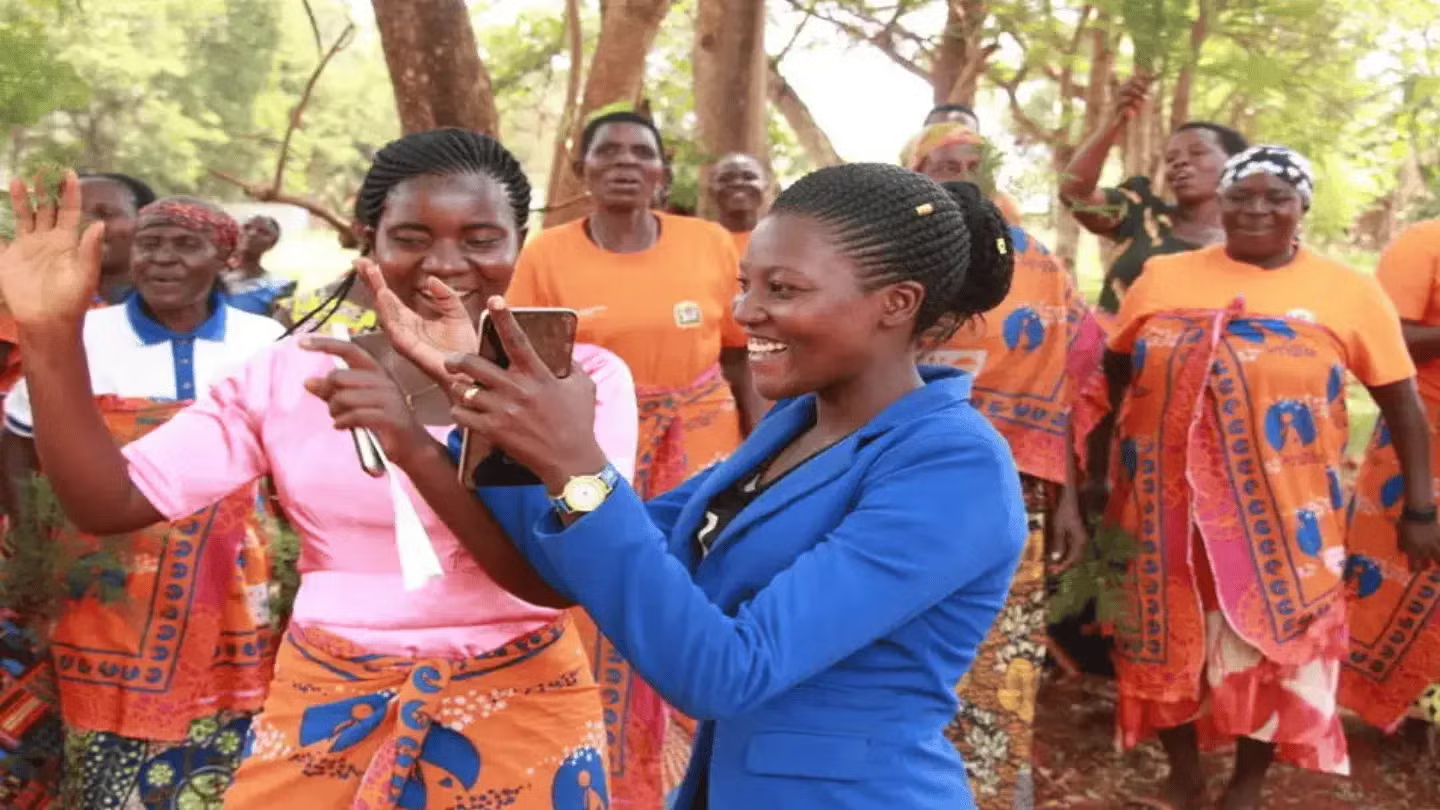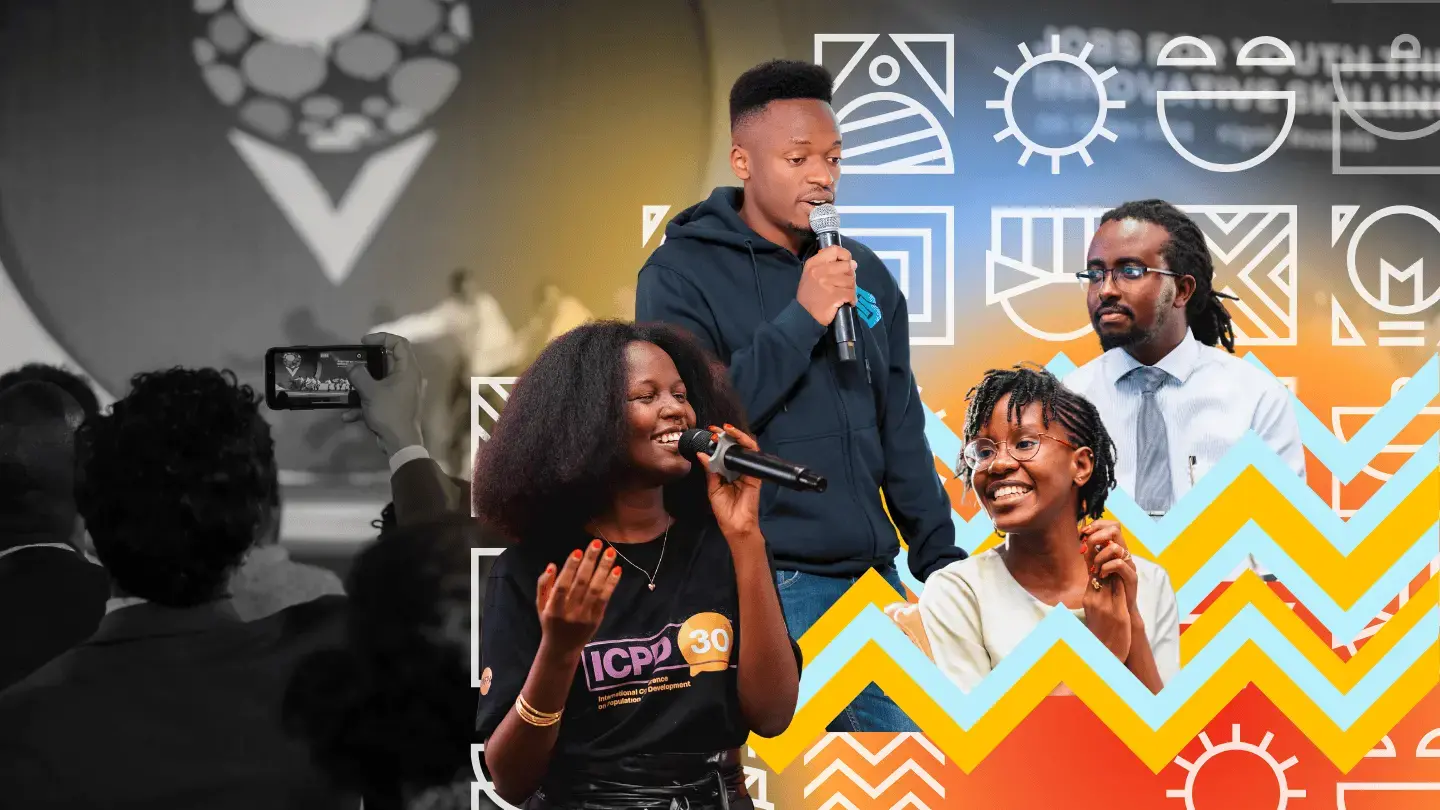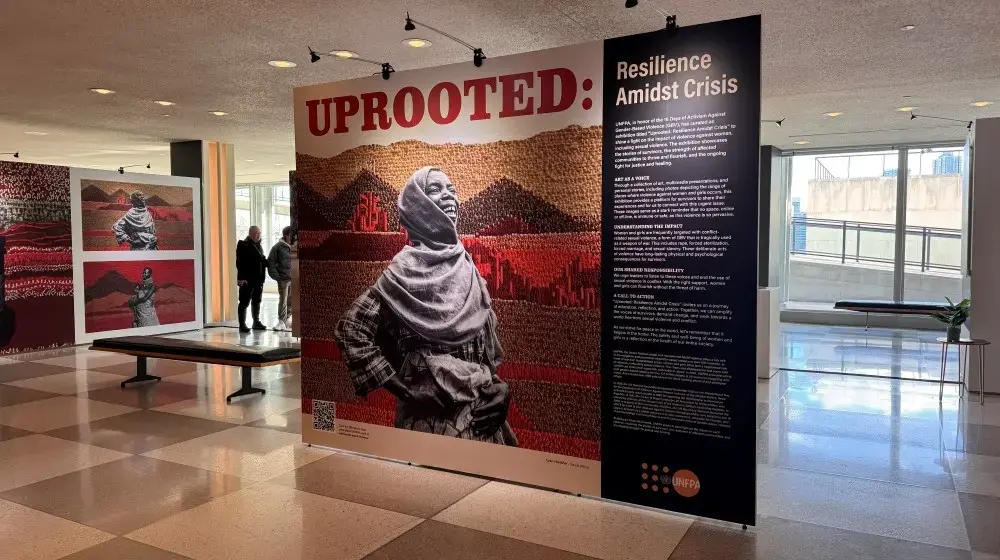AFRICAN UNION CONFERENCE HALL, New York/LILONGWE, Malawi – At 15 years old, Luwiza Lewis, in Malawi, became pregnant and dropped out of school. Stories like hers are tragically common in much of Africa. Young people too often find themselves mired in poverty, pushed out of school and excluded from opportunities.
|
UNFPA Executive Director Dr. Babatunde Osotimehin and Malawian President Arthur Peter Mutharika at the high-level African Union meeting. © UNFPA / Eddie Wright
|
These youth must be prioritized, heads of states and ministers declared at a high-level consultative meeting held at the African Union Conference Hall in New York yesterday.
“Youth can be critical agents for socioeconomic change if appropriate investments are made to unleash their promise,” said Malawian President Arthur Peter Mutharika, who chaired the meeting.
“However, if we don’t take appropriate action now, we will miss our opportunity to turn this growing youth population into a resource for development.”
Demographic dividend – a window of opportunity
Africa is young; in 15 sub-Saharan African countries, half the population is under 18, according to the 2014 State of World Population Report. Countries with high proportions of young people are poised to benefit from a so-called ‘demographic dividend’, an economic boom that can occur when there are more people of working age than dependents.
Presidents, vice presidents and ministers at the meeting pledged to work together to achieve a demographic dividend in their countries. “We have… committed ourselves to investing in the realization of the potential of Africa’s youth population,” said Zambian President Edgar Lungu.
These investments will be needed in education, skills training and health care. Countries must also invest in improving the rights and welfare of young people so they are able to seize and create opportunities.
“Ensuring access to education, health services and employment for youth can mean the difference between capitalizing on a demographic dividend or taking a road towards disempowerment and disaffection,” said Dr. Babatunde Osotimehin, UNFPA’s Executive Director, delivering the meeting’s keynote address.
Empowered young people are already making enormous contributions. “They are leading on global actions, such as ending discrimination, connecting Africa with digital innovations and technology, ensuring our collective resilience in the face of climate change, and building peace,” Dr. Osotimehin said.
Unlocking the potential of adolescent girls
But the greatest gains will take place when the most vulnerable young people – adolescent girls – see their potential unlocked.
“Adolescent girls, in particular, if they can be ensured high-quality education and primary health care, and if they are no longer burdened by child marriage, gender-based violence, unplanned pregnancies, poor maternal and newborn health, or HIV, can generate a better future for themselves and their families – and a dividend for their country,” Dr. Osotimehin said.

